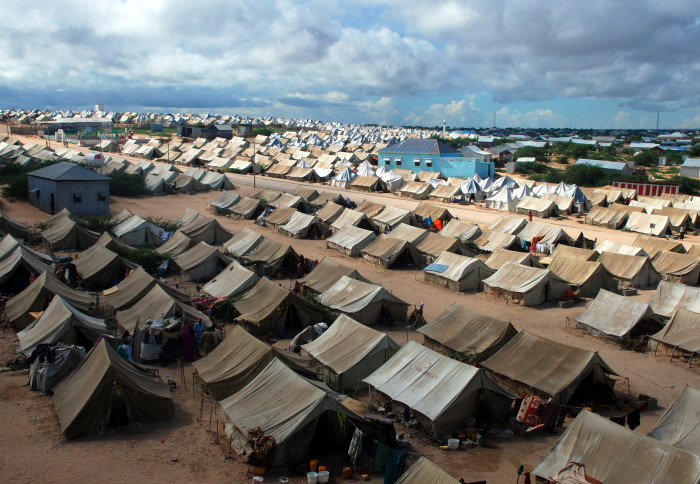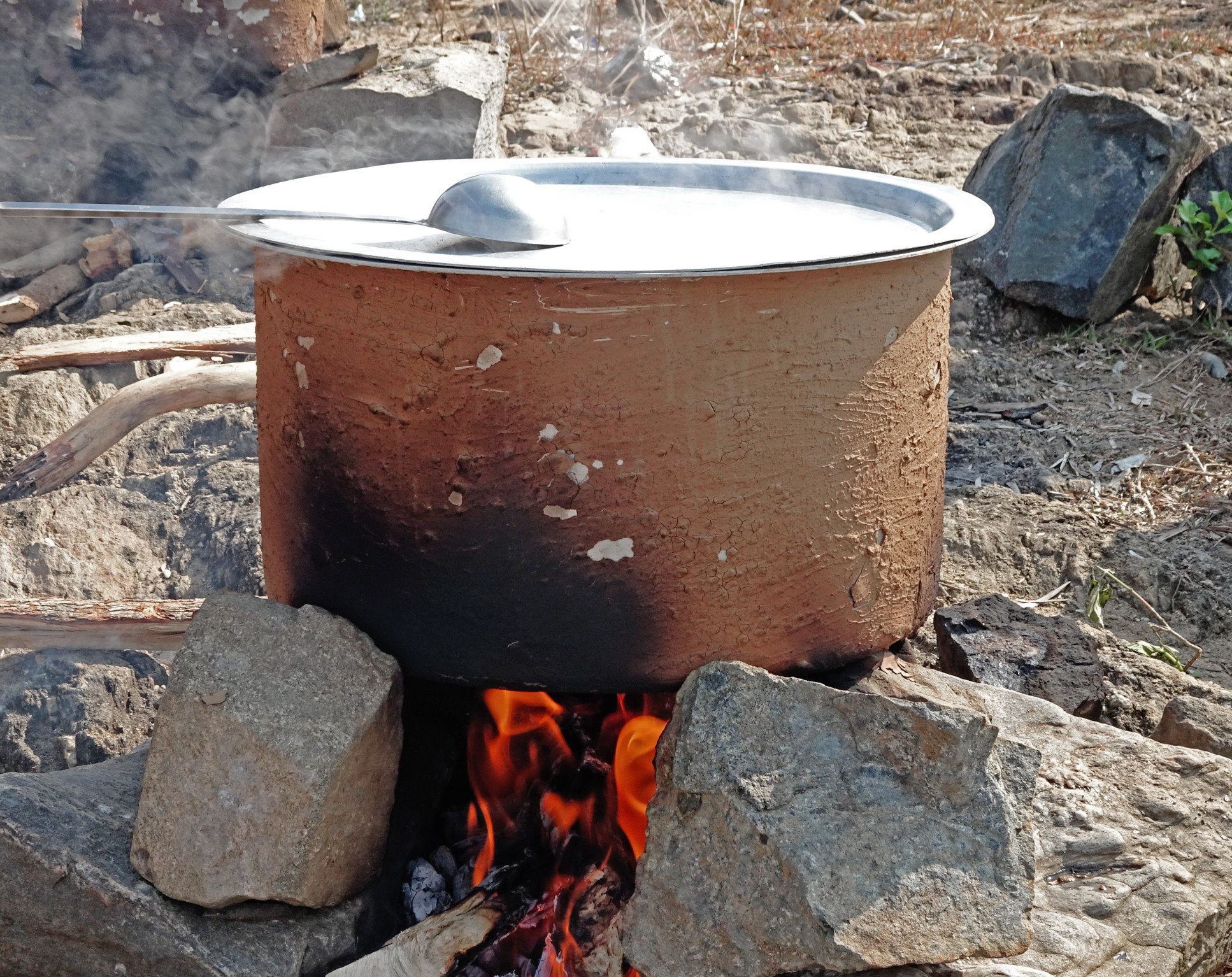Working towards development and peace: Imperial and SDG 16

Sustainable energy solutions for peacebuilding and supporting academics from at-risk areas: how Imperial is meeting Sustainable Development Goal 16.
The United Nations set out 17 Sustainable Development Goals (SDGs) as a blueprint for the world to unite and tackle global issues for sustainable development. Imperial College London’s Global Development Hub was launched earlier this year as part of the College’s efforts to bring together expertise across the College to engage with the SDGs and work towards global sustainable development.
In December 2021, the Global Development Hub ends the year by looking at SDG 16: Peace, Justice, and Strong Institutions. At the College, various initiatives aim to support people in vulnerable situations of conflict and work towards SDG 16 targets.
Increase in displaced people
The last ten years have seen a huge increase in displaced people and refugees worldwide. As of the middle of this year, 84 million people were displaced, many due to civil unrest and war.
Of the displaced people fleeing conflict or natural disasters who end up in camps, many are resident there for many years – despite their nominally temporary status. The influx of thousands – or in some cases millions – of people in a neighbouring country brings its own potential for conflict. People need to meet their basic requirements, for example for resources such as fuel for cooking.

A new and sudden need for firewood to support large numbers of people can threaten to deplete the local forests and degrades the soil for both the host community and displaced people alike. Alternative sources of energy typically come in the form of expensive diesel generators, but are generally only for administration of the camps rather than dwellings or shops.
This pressure on the environment in turn can create tensions between local populations and refugees, in some cases leading to escalations in violence and conflict between peoples. Commonly it is the role of women in the community to collect fuel for cooking, and so the threat of violence is most felt by them as they venture into the local environment to sustain themselves and their families.
Building renewable energy infrastructure
Philip Sandwell, a Research Associate at the College’s Department of Physics and the Grantham Institute, has been working on this problem from a new perspective: that of renewable energy. He models the way small renewable energy networks can function in rural and remote communities, such as those in displacement settings.
By building renewable energy infrastructure in tandem with energy efficient cooking equipment, some of the tension between local populations and refugees could be alleviated and the surrounding environment can remain strong.

It is not as simple as a couple of solar panels, however, as some camps are vast and off-grid networks need to be implemented. That is where CLOVER comes in. CLOVER is an open-source model for off-grid and small networks aiming to optimise rural electricity networks.
Philip has put CLOVER to work while collaborating with a local mini-grid company, MeshPower, in Mahama Refugee Camp in Rwanda and has been modelling the performance of the solar network in the camp. Similar projects are springing up in other areas.
The aim here is longer term solutions and dialogue for peace.
Diversifying energy sources
Opportunities for sustainable energy to support maintaining peace between displaced people and local populations is only one application of these modelling tools. Many communities are completely disconnected from the grid and therefore rely on polluting diesel generators or heavily on natural fuels for power.
 Many of the same issues may arise when it comes to depleting resources, and again could lead to conflict with neighbours. CLOVER is used to model the mini-grids that could power these communities more efficiently and effectively, and to understand the impact of diversifying to renewable energy sources.
Many of the same issues may arise when it comes to depleting resources, and again could lead to conflict with neighbours. CLOVER is used to model the mini-grids that could power these communities more efficiently and effectively, and to understand the impact of diversifying to renewable energy sources.
It is this work with displacement situations as well as vulnerable communities that allows the team to start to action better and more sustainable solutions and work towards an era of sustainable peace.
Cara Fellowship Programme
Academics and researchers are essential in supporting a country’s development and stability for peace, but in many societies across the world that face conflict and instability, academics encounter threats that prevent them from continuing their work in a safe environment. One way that educational institutions have been involved in tackling these challenges is by providing sanctuary and refuge for at-risk academics outside of their home countries.
Cara (the Council for At-Risk Academics) was founded in 1933 by British academics and scientists in response to Hitler’s expulsion of hundreds of leading scholars from Germany based on racial grounds. Years later, they continue to work together with universities to support academics around the world who face grave risk from persecution, violence, and conflict.
One of Cara’s key programmes is their Fellowship Programme, of which the College is an active supporter and participant. Through the programme, universities in the UK support academics by providing a safe place for them to continue their work.
Sanctuary for academics
By providing sanctuary for academics, not only is their knowledge preserved for the future, but the programme also engages and enables Fellows to contribute to development and higher education communities in their home countries when it is safe, should they wish to do so. For those who may not be able to return or choose not to, they are also welcomed in their host institutions and help to strengthen them and society by bringing fresh experiences and perspectives and promoting diverse and inclusive institutions.
As a participant of Cara’s Fellowship Programme, the College hosts Fellows and their families while they complete postdoctoral placements at the College. If you'd like to learn more about the partnership or are interested in hosting a future Cara Fellow, please contact Imperial's International Relations Team.
Contributions from Philip Sandwell and Rosanna Gillespie
Article text (excluding photos or graphics) © Imperial College London.
Photos and graphics subject to third party copyright used with permission or © Imperial College London.
Reporter
Sofia Hurst
International Relations Office
Joanna Wilson
Communications Division